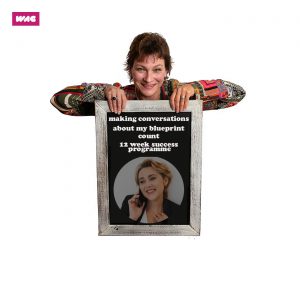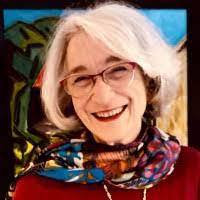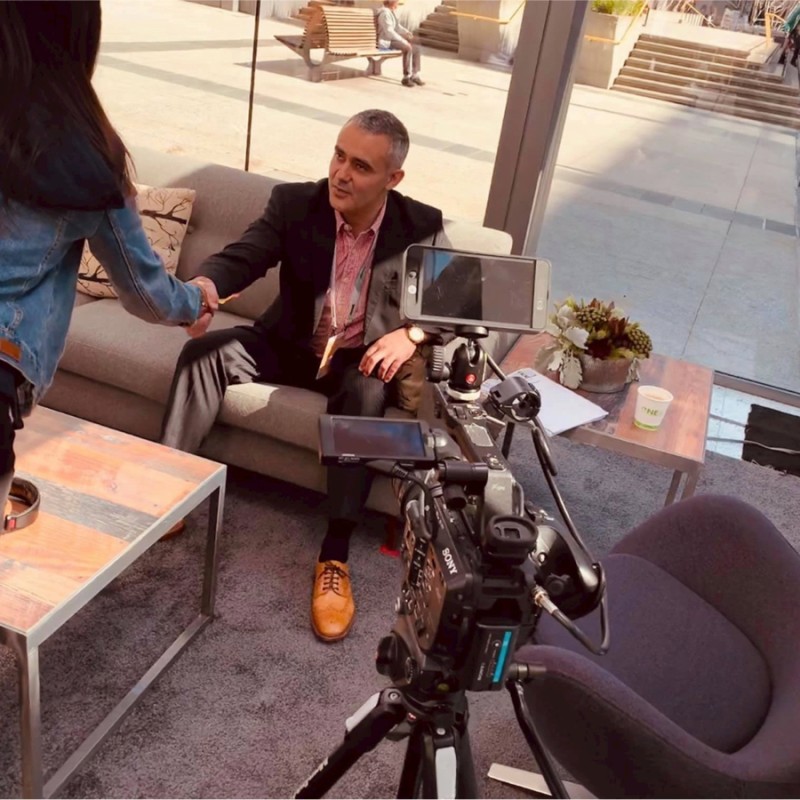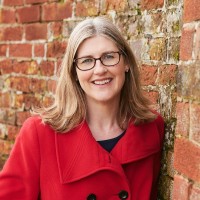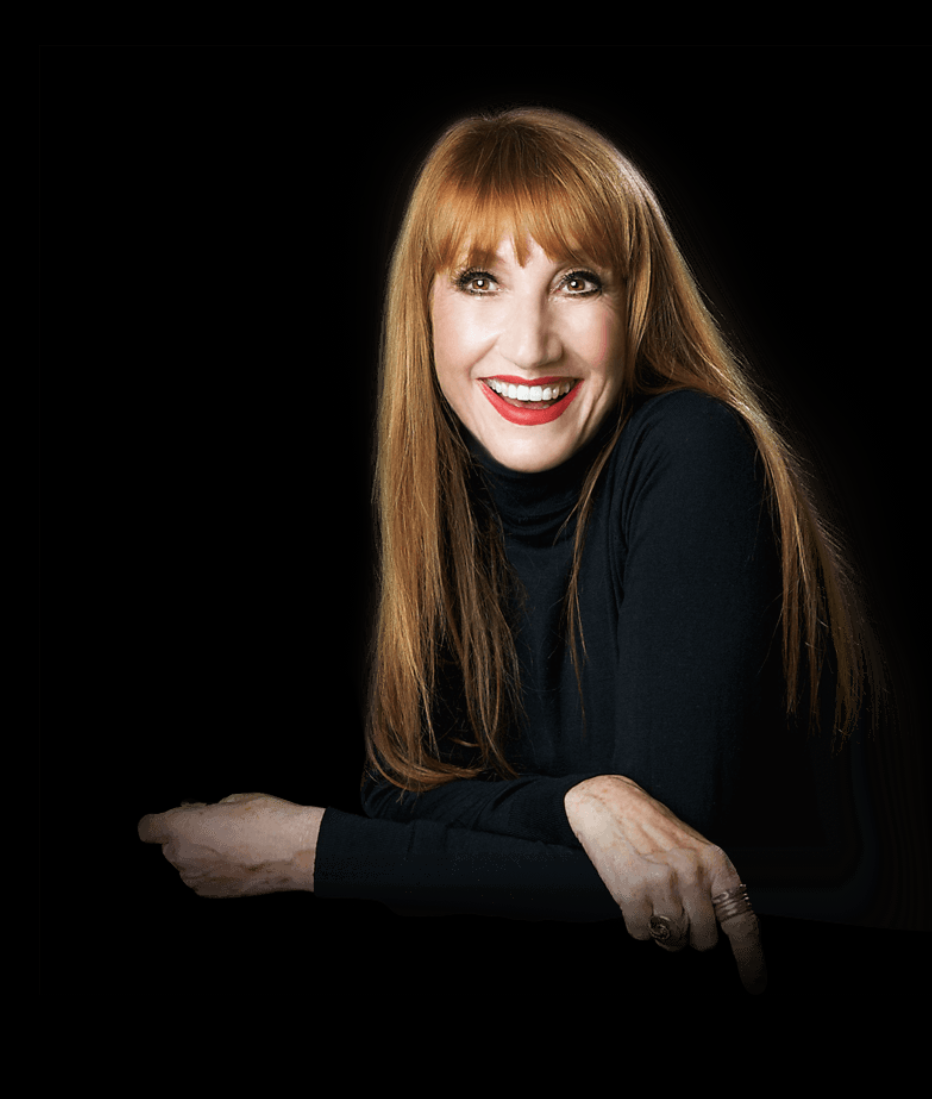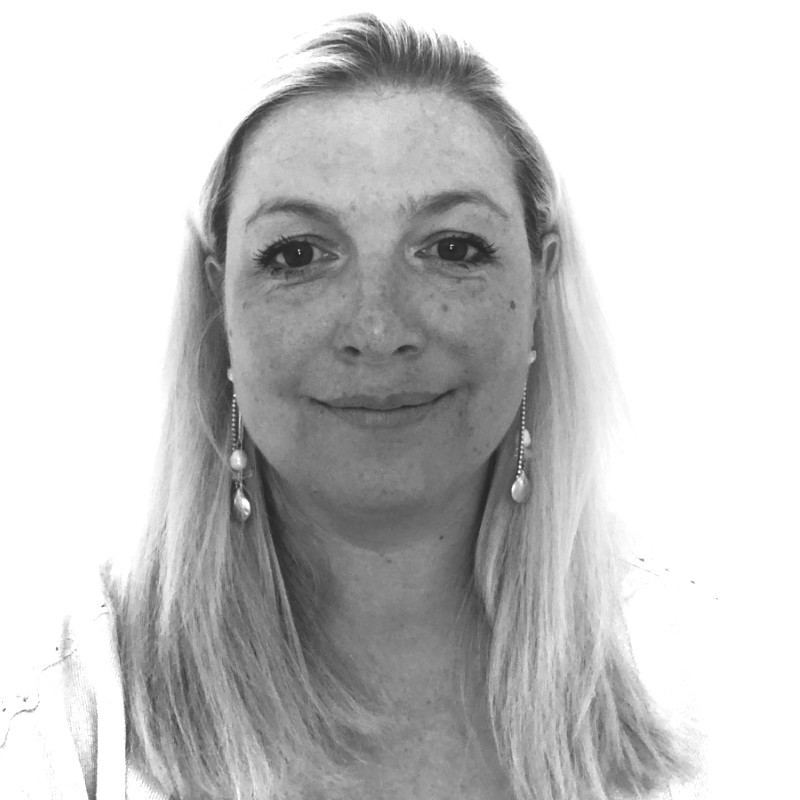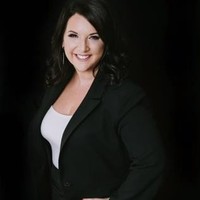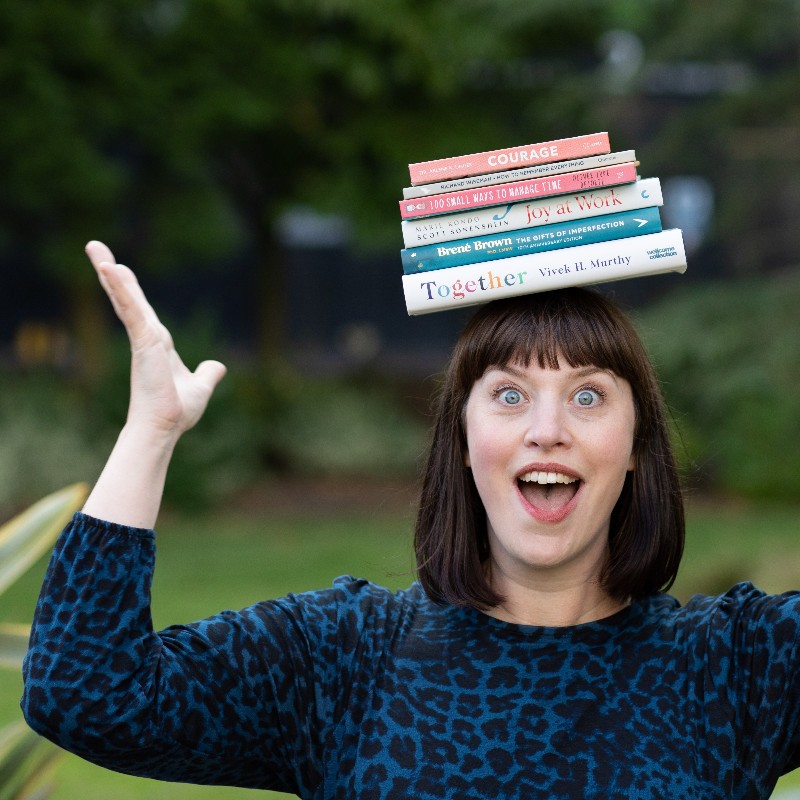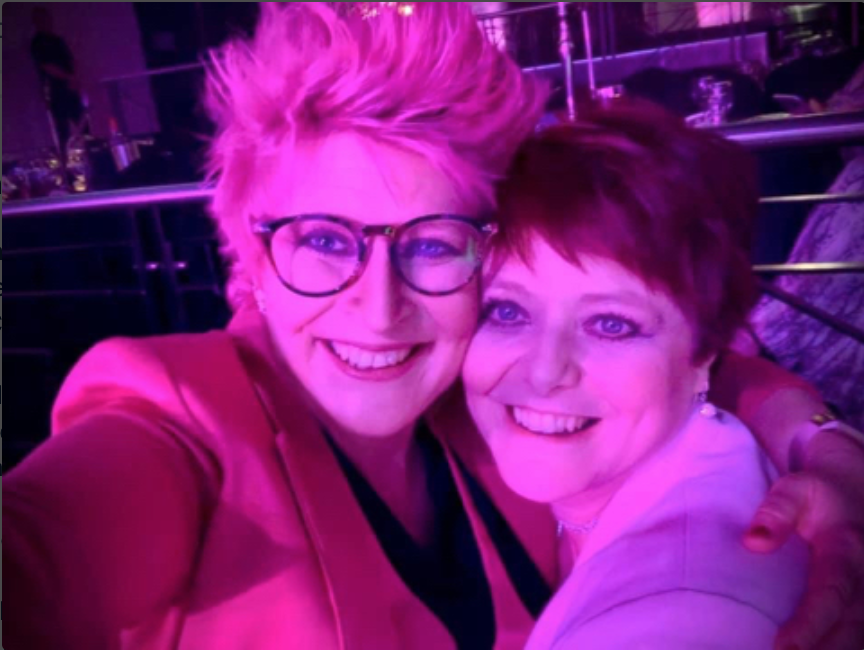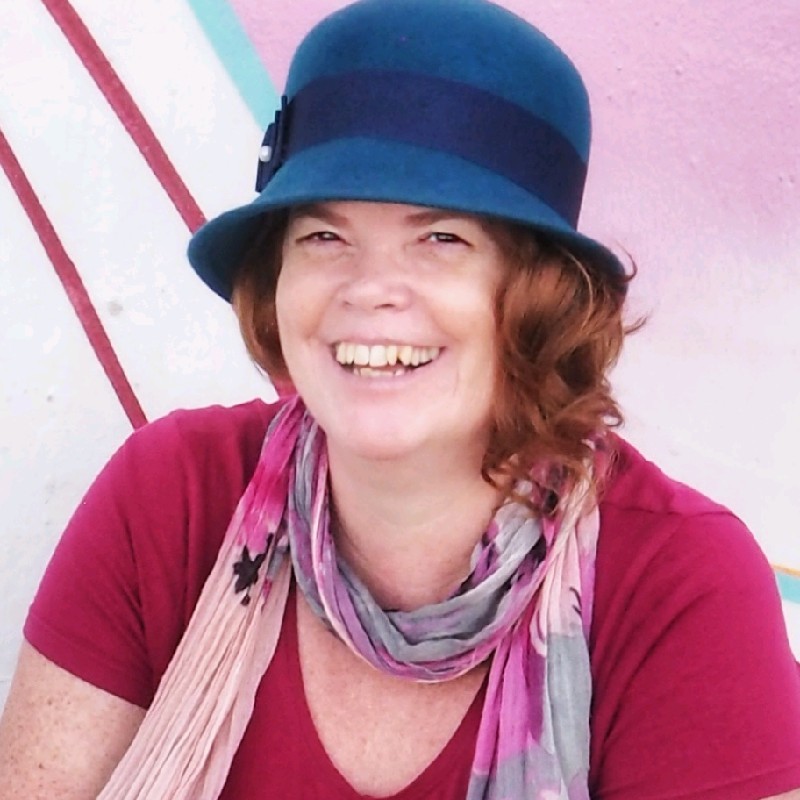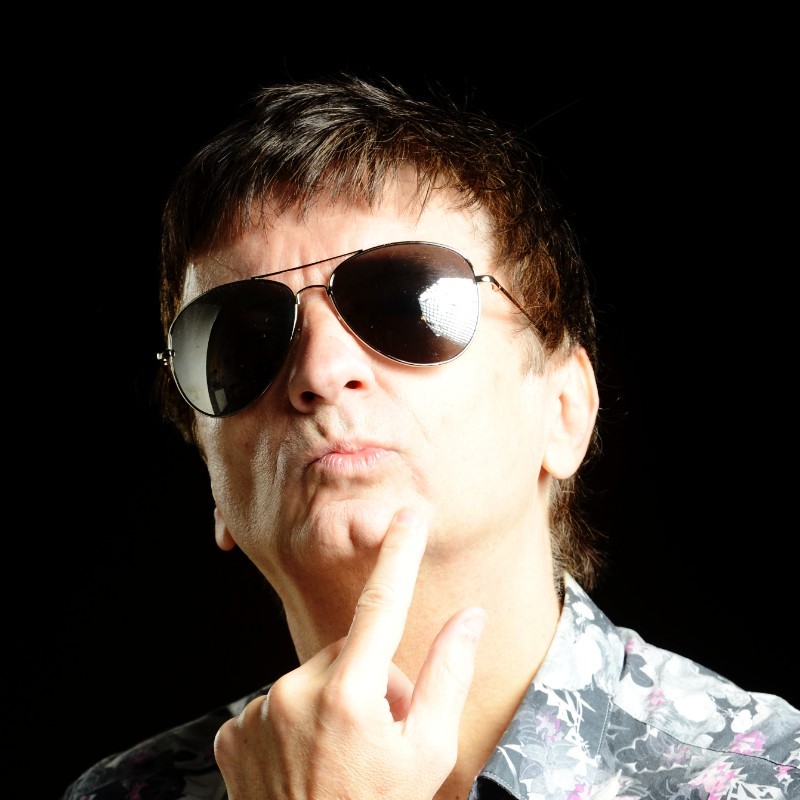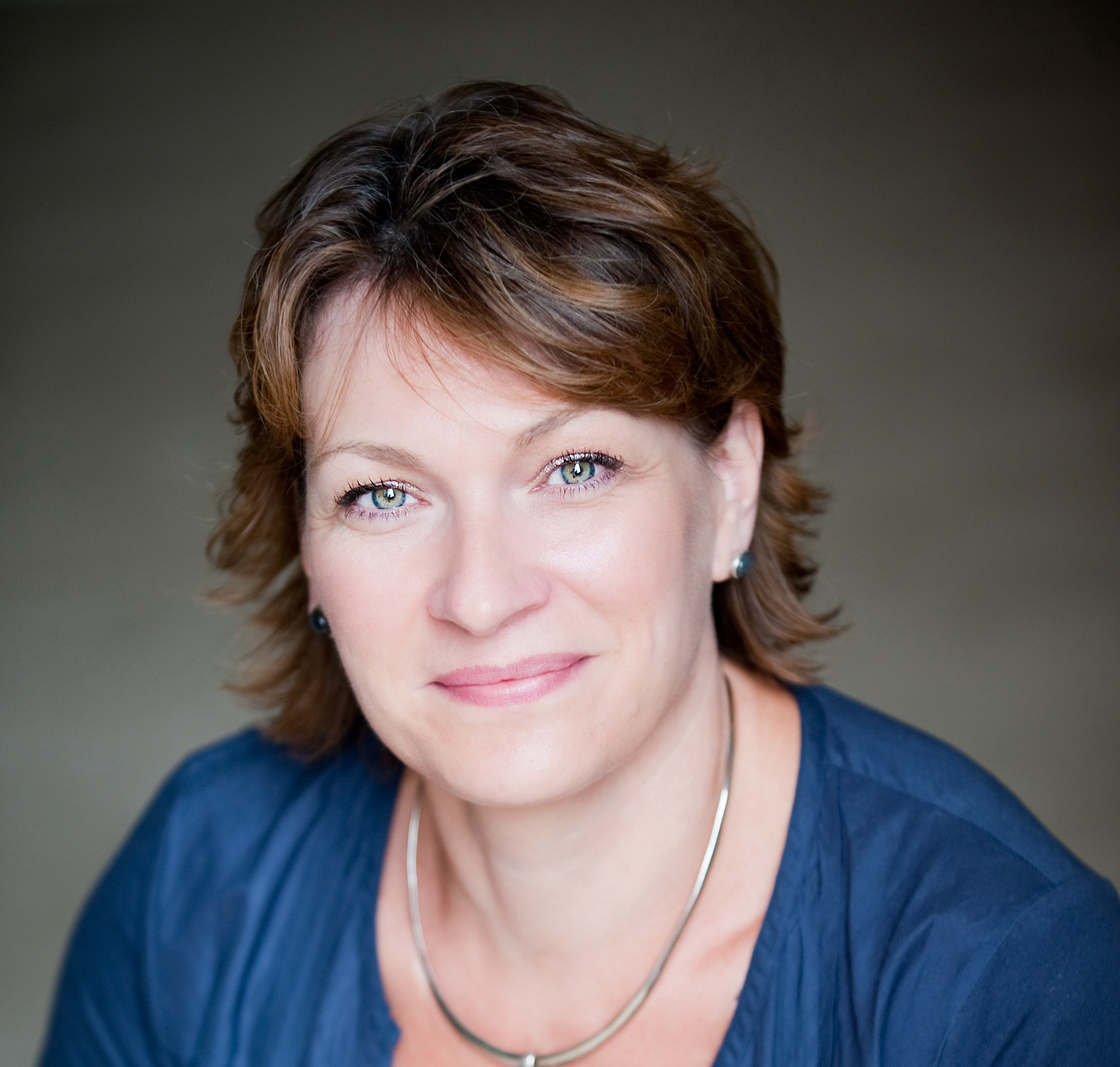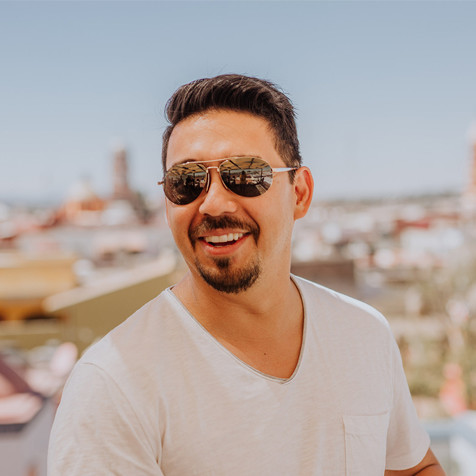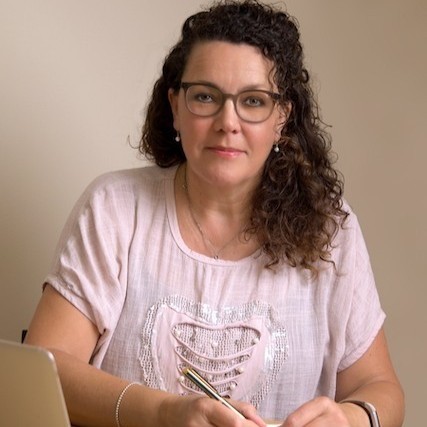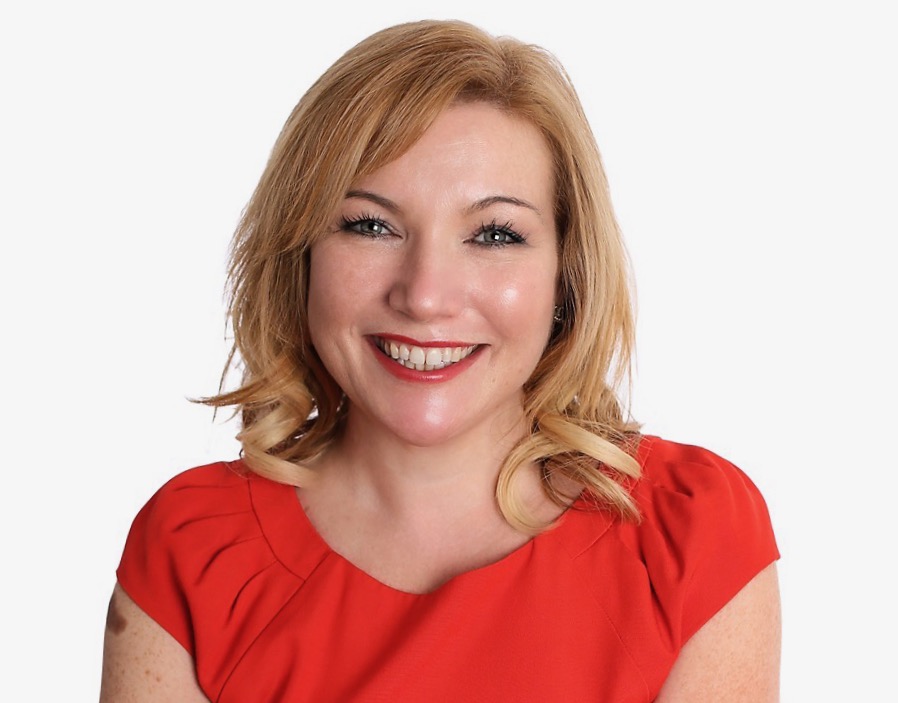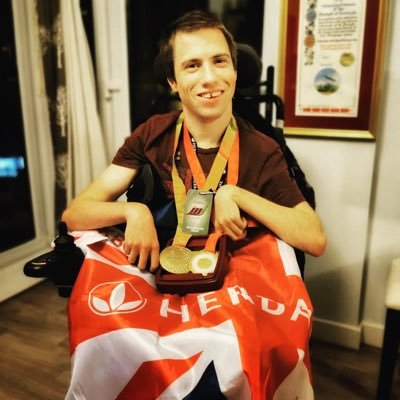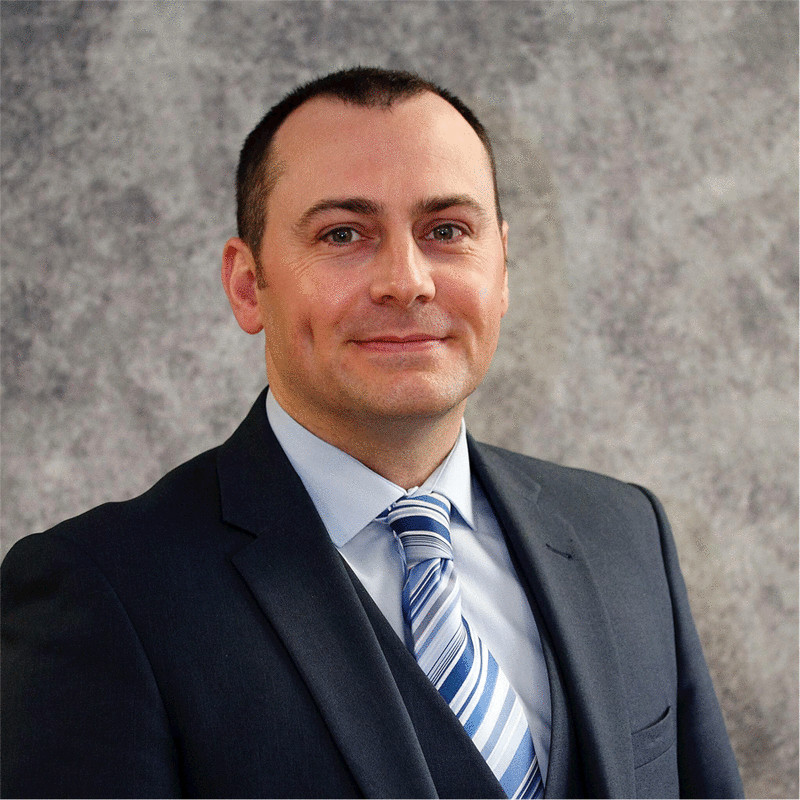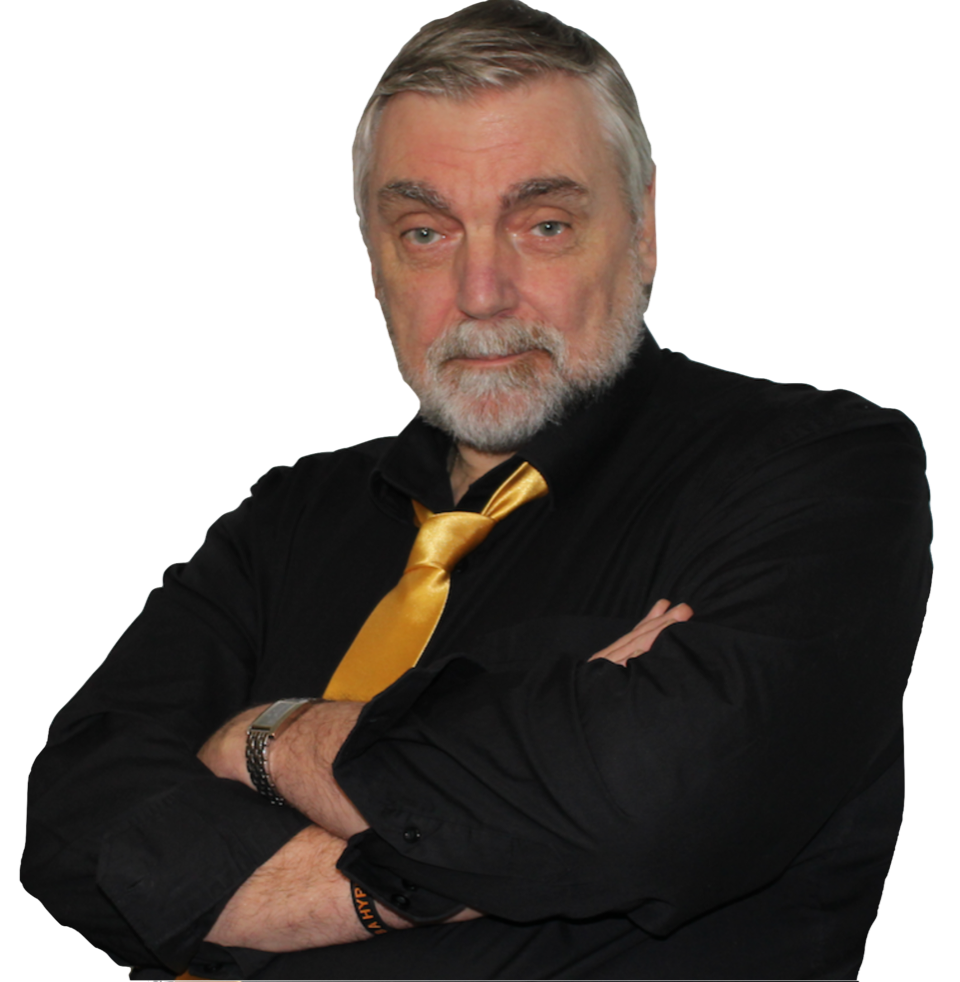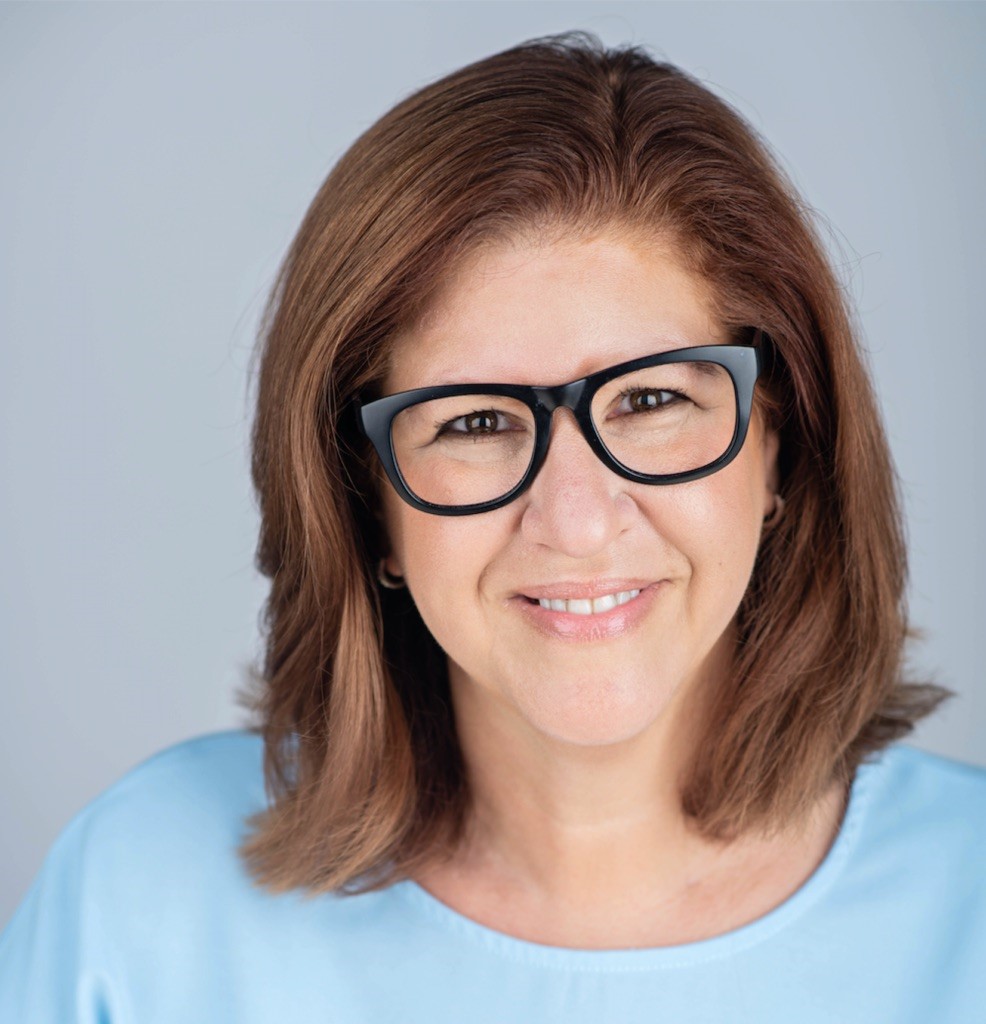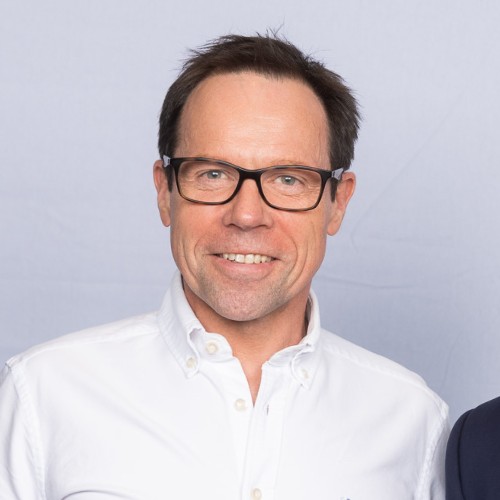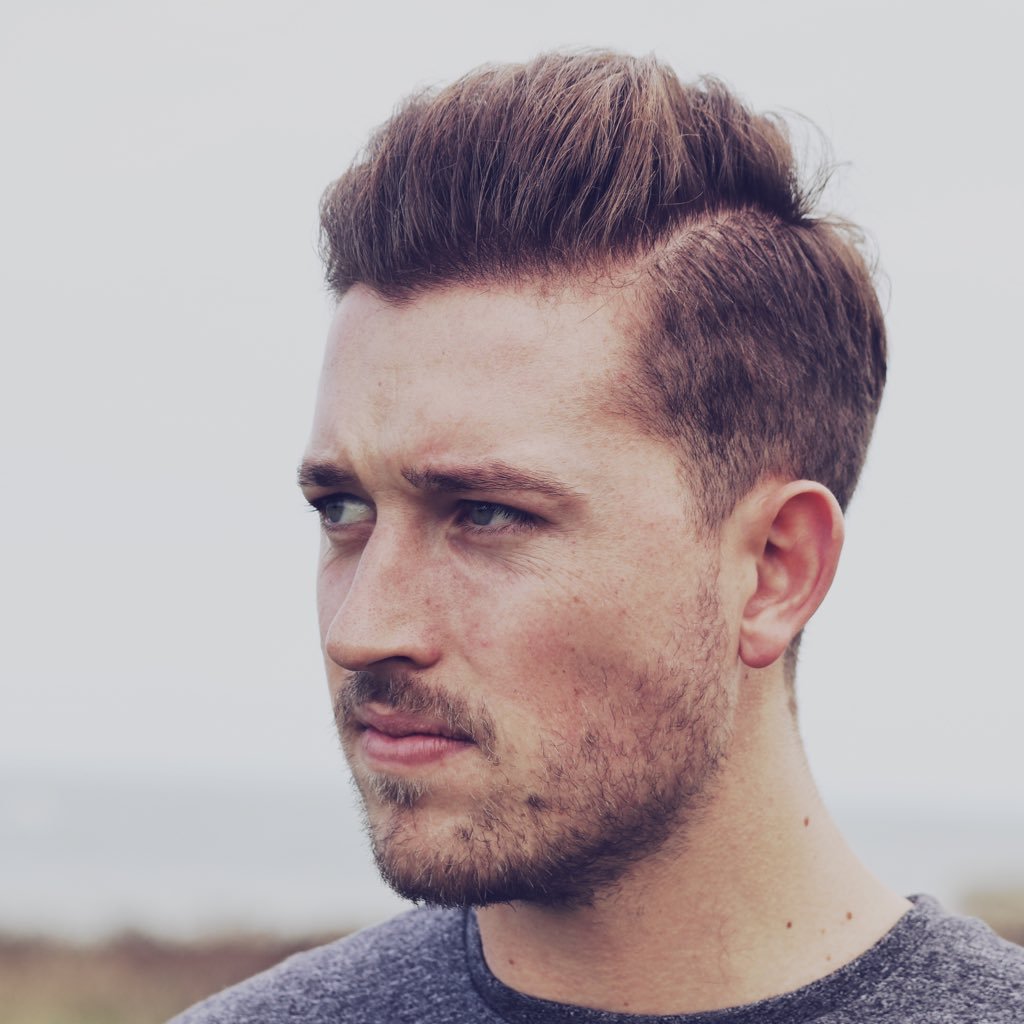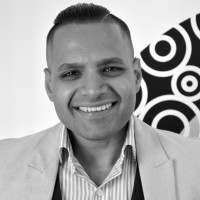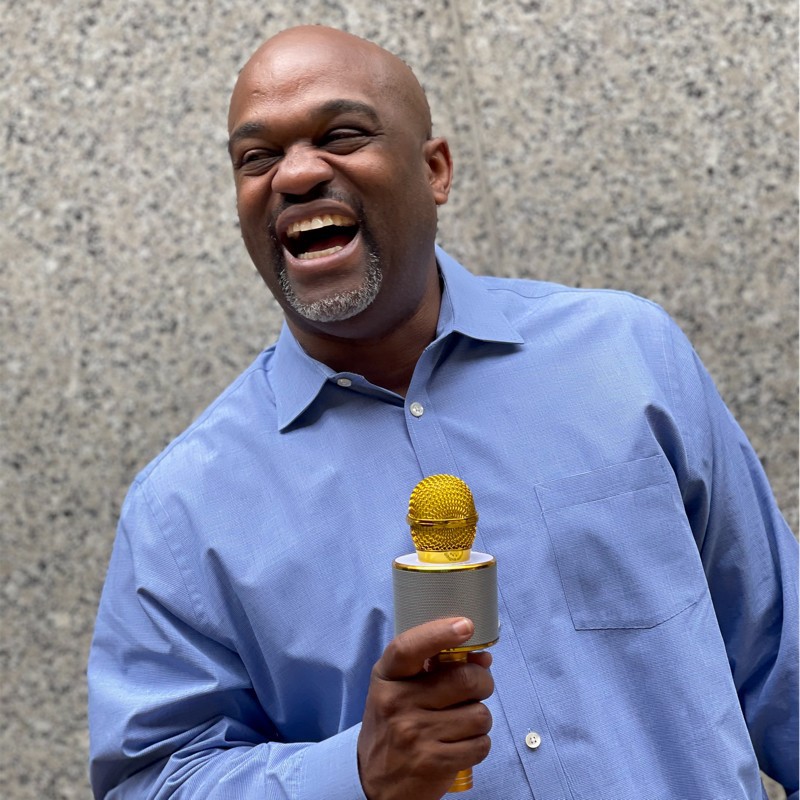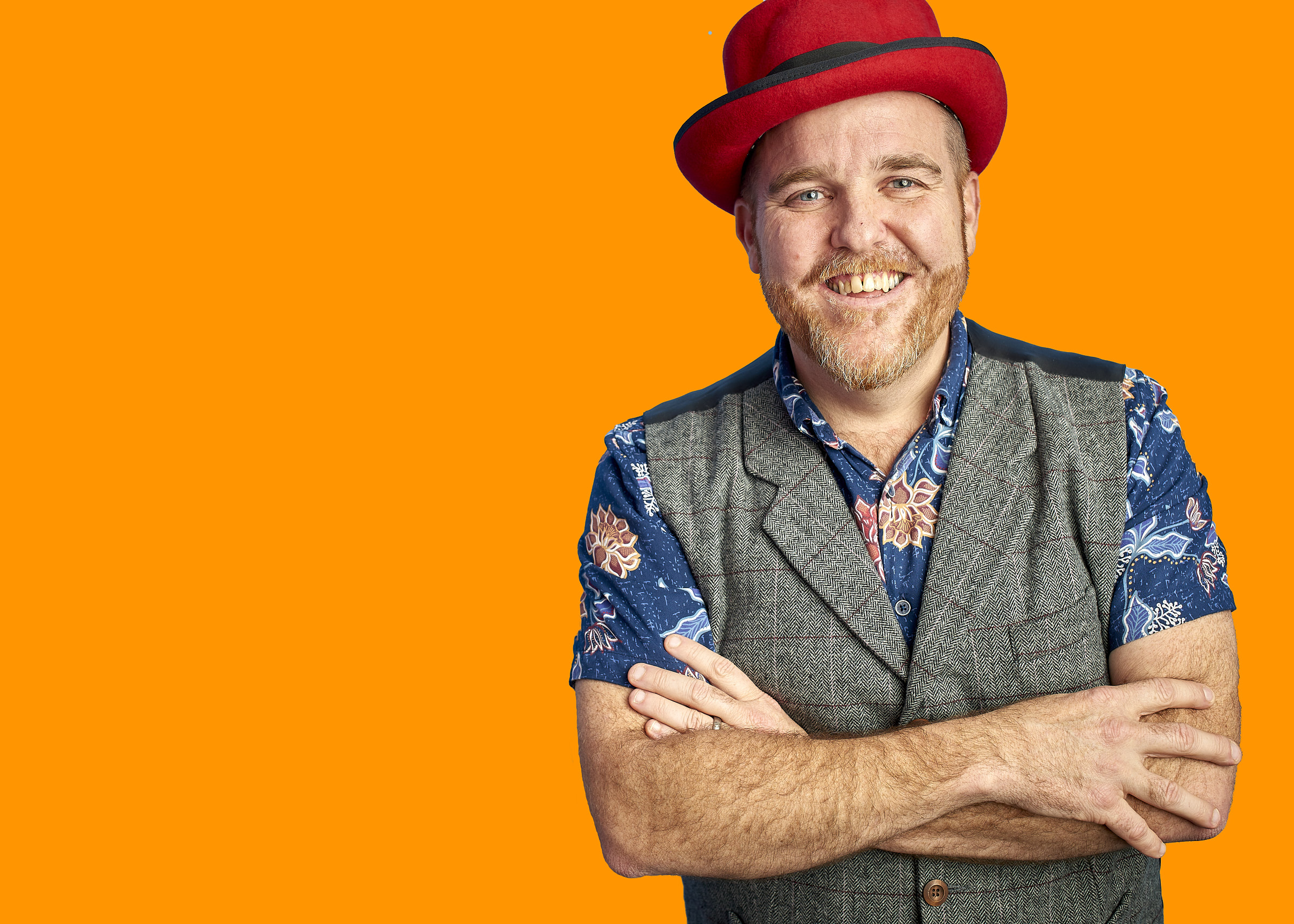Get moving with an art and dementia program for your brain health!
We're Making Conversations about brain health Count!
Episode 72 - Veronica Franklin GouldHave you thought about using an art and dementia program with your loved one? We’re making conversations about brain health count with Veronica Franklin Gould!
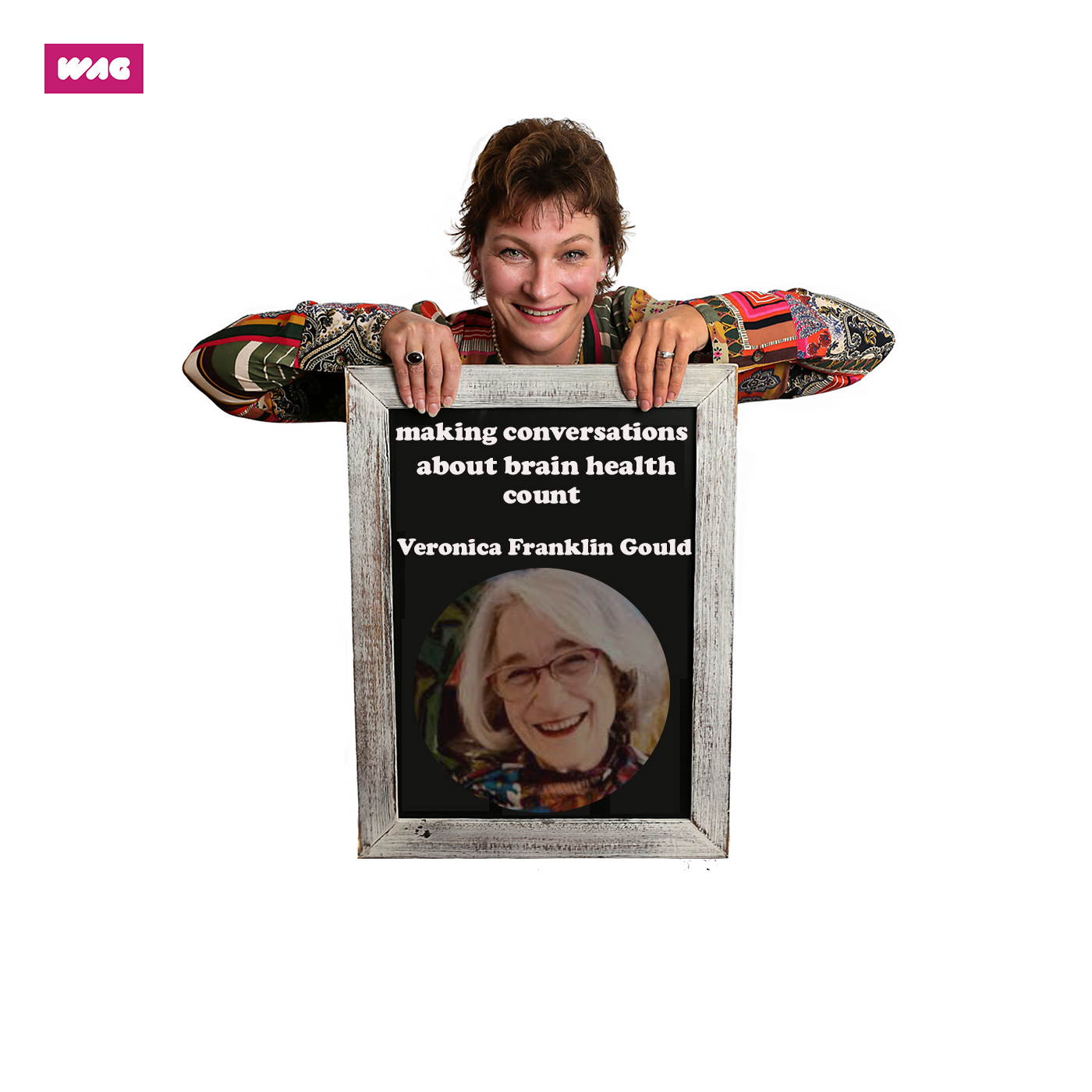
Big take-away quote from this conversation about brain health and using an art and dementia program for ‘dementia mapping’:
“You are keeping your brain active and having a lot of fun while you’re doing it. But it’s always good to keep learning….“…
Veronica Franklin Gould, Making Conversations Count (March 2022)
(Hard of hearing? Transcript here).
Strapped for data? You can hear a lower-bandwidth version of the episode here.)
What is dementia?
Dementia is a term used to describe the symptoms and effects of various disorders that have an impact on the brain. These are diseases which can affect your ability to think, remember, and communicate. Dementia affects 1 in 6 people aged 65 years or older worldwide, with more than half of those cases being diagnosed as Alzheimer’s disease.
The key thing about these conditions is that they gradually get worse over time. This means you may not notice any changes at first but then become increasingly aware as it progresses.
This could take just months or many years depending on what type of dementia you have.
If you live with someone who has dementia then there’s lots of information contained within this episode for both carers and those dealing with dementia.
But we really wanted to focus on the benefits we can bring to you as quickly as possible.
For that reason, most of the conversation centres around the use of arts for brain health programme designed to re-energise and inspire people to override symptoms of dementia.
So let’s use this space to explain a bit more about the potential condition and the overall impact on brain health.
If you don’t mind, we’d like to take a quick moment to remind you of another way you can keep your brain health up – with conversations.
No spoilers, but it transpires that once again, conversations can play a very active role in this week’s topic.
Wendy‘s currently running a 12 week blueprint programme which outlines her ‘four R formula’.
Want to overcome that fear of rejection or guide your teams towards having better conversations?
Well, then you need to click this.
Sign up now to make sure you don’t miss the opportunity to improve every aspect of your lead-generation.
Using decades of knowledge and experience, Wendy can help you get the results you want, quickly.
Follow and listen on Apple Podcasts now by clicking this:
What is the difference between dementia and Alzheimer’s?
Dementia and Alzheimer’s are two different conditions that have an impact on the brain.
Dementia is a general term used to describe the symptoms and effects of various disorders that have an impact on the brain.
These are diseases which can affect your ability to think, remember, and communicate.
Alzheimer’s disease is just one of those types of dementia.
The key thing about these conditions is that they gradually get worse over time.
This means you may not notice any changes at first but then become increasingly aware as it progresses.
This could take just months or many years depending on what type of dementia you have.
What is mixed dementia?
Mixed dementia is a term used to describe two or more types of dementia which are present in the same person.
This means someone with dementia could be enduring elements of any different types of mixed dementia including multi-infarct and vascular.
So what can we do to help prevent or at least treat any of these types of dementia?
There’s a lot of research that supports the idea that keeping our brains active is one of the best things we can do for our overall health and wellbeing.
One great way to do this is by participating in an art and dementia program.
This is where this week’s episode guest comes in.
Arts4Dementia is a UK-based charity that specialises in offering a arts programs to help those dealing with dementia to overcome the impacts.
Veronica Franklin Gould, who is the President and Head of Research as well as the Director of their Social Prescribing Programme talks to Making Conversation Count podcast host Wendy Harris all about their work.
Veronica explains how important it is to help those dealing with dementia to keep their brains active, and that taking them to an arts event is a great way of doing that.
It’s an opportunity to share together in an arts activity, rather than worrying about their condition.
Have you clicked the play button on the player yet?
Using art to cope with dementia
Here’s a direct quote from the transcript (available below) where Veronica outlines the benefits of using arts for coping with dementia.
“If, for example, you’re looking at a picture together, you can discuss it.
You might need to give them a bit of time to respond, but you can discuss it and come out with as fascinating a dialogue as ever before.
You can enjoy music, you can enjoy dance together, you can enjoy out-of-the-box things together, you can go on walks together; but if you could invest, let’s say, the two hours of travelling to and fro and one-hour activity, it is activity joyously spent, and it keeps you loved one healthier, and you much more relaxed, knowing that they are really benefitting from that time, and really feeling that they’re worthwhile people, and you feel that you’re investing joyful time together.
This could go on for very much longer. In fact, if they take up arts on a weekly basis, they can stay healthier for some three years longer by doing so.”
Watch the episode promo!
Managed to catch the previous episode yet? Click play on the player below to listen!
What you can do to help support your own brain health, and stave off the impacts of dementia
In this episode, Veronica talks us through some of the most effective methods and art forms for keeping dementia at bay.
If you heard the sneak preview at the end of last week’s episode, you’ll know what she thinks is the absolute best.
Wendy shares her own method for keeping on top of her brain health, and you’ll be pleased to know, it gets a magnificent tick of approval from this week’s expert.
“There’s a marvellous man, Sir Muir Gray or Optimal Ageing at Oxford, and he’s often on those monitors in the GP surgery or online saying how important it is to take a bit of exercise on the spot every now and again; you’re sitting at your desk, taking a bit of exercise on the spot.
But if you want to do the social type, it’s good to do it in groups.”
(Full transcript here)

What arts4dementia are doing is known as ‘dementia mapping’
Dementia mapping is the process of artfully documenting a person’s life, art and environment.
It can be used as a tool to help those with dementia, as well as their families and carers, to share and connect with their loved one’s life story.
It can also be used as a way for dementia sufferers to connect with their art and environment, and to explore their creative side.
Mapping can be done in a variety of ways, including through art, photography, interviews, stories, and poetry.
So as you can see, the work that Veronica Franklin Gould and her team are doing is simply invaluable and you should click to learn more about this incredible initiative.
What is the clock test for dementia?
If you’re concerned that somebody you know and love might be a sufferer, or perhaps you’re worried about early onset dementia, here’s something simple you can do to confirm that status.
The clock drawing test is a common tool used to screen for dementia. During the test, the individual is asked to draw a clock, and then time is marked on the drawing.
The individual is then asked to mark the time again.
This test is used to evaluate the individual’s ability to think abstractly, understand time, and remember how to draw a clock.
During this episode you’ll learn:
- The meaning of ‘use it or lose it’
- What is Arts4Dementia and how it uses an art and dementia program to help ease the difficulties of dealing with dementia
- The importance of including the sufferer in conversation
- The ability to revive lost skills
Find out more about Veronica’s organistation here: https://arts4dementia.org.uk/
And here’s Veronica’s own spot on the web: https://veronicarts.org/
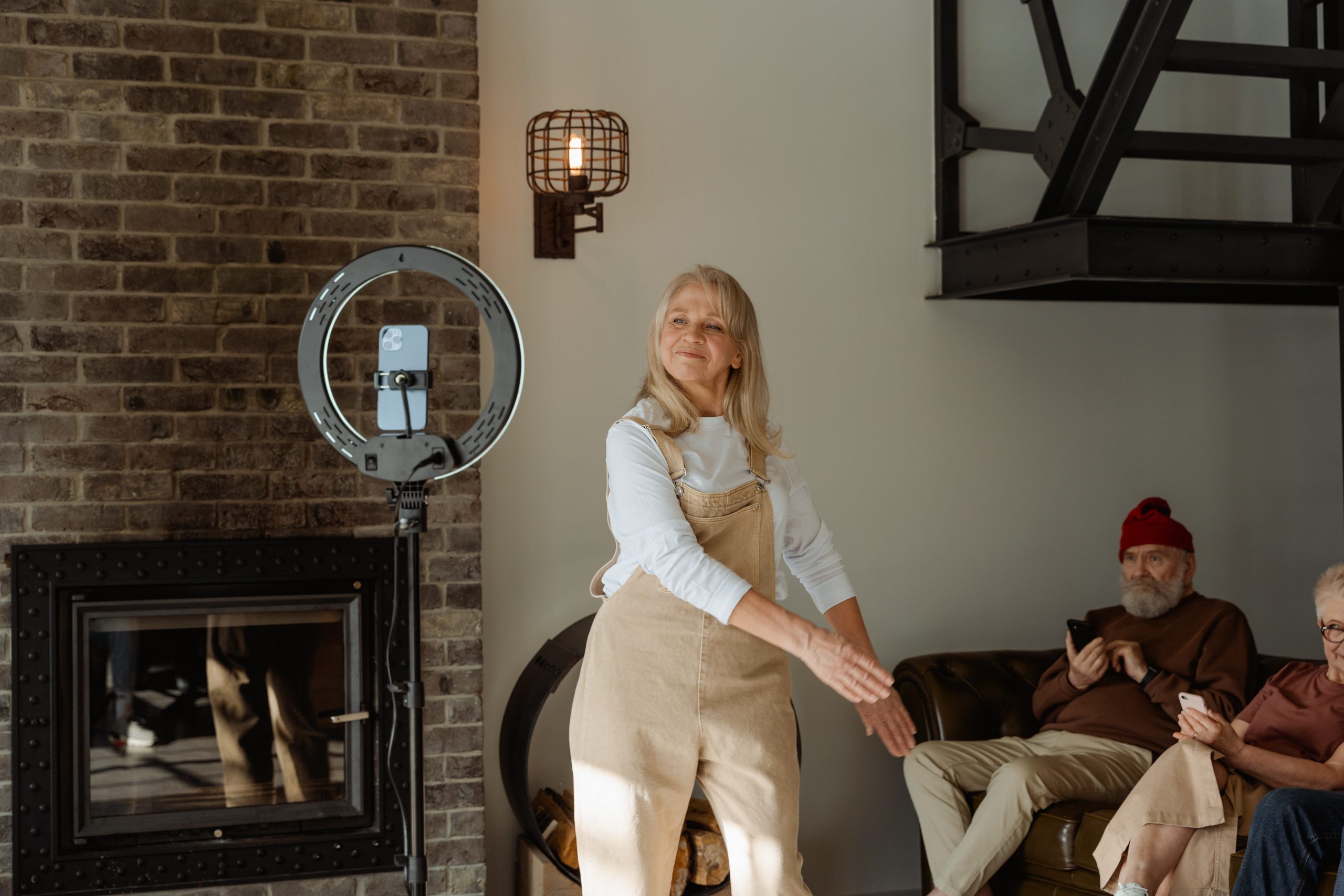
So, Wendy’s takeaway from the conversation in this episode about making use of arts and dementia programs for brain health with Veronica Franklin Gould?
“This week’s episode of Making Conversation Count is a very personal one for me. A few weeks ago, my mother Valerie Harris passed away after a long battle with dementia.
Valerie was an amazing person, and I will miss her dearly.
Dementia is a terrible disease that robs people of their memories, their independence, and eventually, their lives.
It’s important to talk about dementia, and to raise awareness about the disease so that more people can understand it and support those who are suffering from it.
Admittedly not a fun episode for you this week, but an important one even so.
It’s our hope that by listening you’ll feel empowered with ideas for how to help yourself and any loved ones who are enduring this awful condition.
Our thoughts are with anyone who is enduring this in their life right now.
Wil you now consider supporting your friends and loved ones with these kinds of activities?
Please do let us know your take-aways from this episode by leaving a comment at https://makingconversationscount.studio/Review-Veronica-Franklin-Gould
Want to carry on the conversation with Veronica?
New to this site? Learn more about Making Conversations Count podcast:
“Making Conversations Count” is a podcast from WAG Associates founder and telemarketing trainer Wendy Harris.
Missed our previous episodes?
You can catch up with any of the other guests we’ve been making conversations count with, here.
If you’re on your mobile device, you can hear them in your favourite platform (Apple or Spotify etc) here.
Once you’ve listened, remember to leave us a review!
NEVER MISS AN EPISODE AGAIN!!
Follow the show on Apple Podcasts here!
Follow the show on Spotify, here!
You are following the show on socials, right?
Only there will you see sneaky peaky teasers of the upcoming episodes, as well as updates and news on the show!
Here are the links just in case you need them:
Listen to other episodes on your favourite platform…
Fancy repeating the experience of making conversations count? Here's another chance to hear a popular previous conversation - on a similar theme to the one you just heard.
Full Episode Transcript - Conversation about brain health - "Making Conversations Count"
| Title: | Making Conversations about Brain Health Count |
| Episode: | 72 |
| Guest: | Veronica Franklin Gould, Arts 4 Dementia |
Timestamps
00:00:00: Introduction
00:02:20: Use it or lose it
00:05:19: Keep in touch, even online
00:08:01: The inspiration for Arts 4 Dementia
00:11:49: Arts of any type at any age
00:12:48: The power of singing and dancing
00:14:48: The importance of including the sufferer in conversation
00:18:36: The ability to revive lost skills
00:21:54: How to keep mentally healthy at 50
00:24:45: Veronica’s pivotal conversation
00:00:00: Final thoughts
Interview Transcription
Wendy Harris: This is a very special episode of Making Conversations Count, and it’s in tribute to my late mother-in-law, Valerie Harris. She suffered with a very rare form of Parkinson’s, called PSP, and whilst she continued to have her cognitive senses right up until her last breath, she was unable to communicate with us.
So, when I met today’s guest, I knew I wanted to be able to bring this conversation to life to more people, not in just business, but personally too, because keeping our cognitive health well will lead to longer, more productive lives, and I’m hopeful that that will also lead to a much happier existence, should we each or any of us be unfortunate enough to be diagnosed with such a serious illness. Today, in this episode, we’re speaking with Veronica Franklin Gould. We’re Making Conversations about Brain Health Count.
What’s new, Wendy Woo? Well, you may have noticed, if you go back two or three shows, that we’ve been producing some bonus content, and that is only for subscribers and followers to the show. You will get a ping on a Sunday to say that that bonus content is there, especially waiting for you. Nobody else is going to get it, it’s just for you.
Also, we’ve had another review in over on Apple Podcasts, and it’s from LifeChoreo, I think it is, who says, “Great info! Five stars. I love the tips and info! This show is keeping me motivated to do what I need to do to move things ahead!” Well, it’s so great to hear from, and we’re just really thrilled that we can keep you motivated. If there’s something that you really want us to cover, please do just let us know.
We have covered mental wealth, menopause and how that affects men as well as women in the workplace. These sorts of topics don’t always get an awful lot of bandwidth. So, when we first met, Veronica, my ears pinned back, because as much from a personal point of view as well is that I’ve got an ageing mother-in-law with a very rare form of Parkinson’s; it comes under the Parkinson’s umbrella, but it’s PSP. So, there are about 200,000 people diagnosed every year with this particular form, so it’s quite low on the radar of priorities in the grand scheme, but it’s so debilitating. In actual fact, the only advice given to her was, “Use it or lose it”, kind of what your message is all about, Veronica?
Veronica Franklin Gould: It is. So, I’m talking to you about Arts 4 Dementia, and if you’re a busy person with a busy career and you have a parent or parent-in-law who has dementia, the most wonderful thing you can do with them to spend your time well, and her time or his time well, is to take them on an arts class, where you can share together an arts activity as friends, rather than worrying about their condition. Because when you go over normally to see, you’re checking up on everything’s okay at home, but actually you can have a great deal of fun together, because people retain their creativity, their interest in life. It’s only the means of expression that’s particularly badly hit.
If, for example, you’re looking at a picture together, you can discuss it. You might need to give them a bit of time to respond, but you can discuss it and come out with as fascinating a dialogue as ever before. You can enjoy music, you can enjoy dance together, you can enjoy out-of-the-box things together, you can go on walks together; but if you could invest, let’s say, the two hours of travelling to and fro and one-hour activity, it is activity joyously spent, and it keeps you loved one healthier, and you much more relaxed, knowing that they are really benefitting from that time, and really feeling that they’re worthwhile people, and you feel that you’re investing joyful time together.
This could go on for very much longer. In fact, if they take up arts on a weekly basis, they can stay healthier for some three years longer by doing so.
Wendy Harris: It’s not just the person that’s potentially suffering that’s in that situation of having to cope with a medical condition that affects them physically, emotionally, mentally, it also gives a little bit of respite for the loved one or friend.
Veronica Franklin Gould: You can do it with a friend, you can do it with a family partner, you can do it with a paid partner, and it is much more fun to do these activities together, so that saves the worry about travel. But of course now, with COVID, opportunities are blended, and I think that’s a really, really good idea; because, if you’re joining a drama class or an arts class by Zoom, you can actually see each other, you’re not lonely, and the course leader will be able to look directly at you through the camera’s eye and you feel involved. It’s actually great fun.
I suppose you can actually escort your loved one from a distance, because if you can both join in — and there’s a marvellous organisation called, whether it’s Digipals, Age UK, they often can guide people into getting online, because really, one thing that’s actually very important is to help people stay connected, even with dementia, because that sort of feeling that you can stay in touch is so very important, and you can live full lives.
Wendy Harris: You see, that makes even more sense to me to be Making Conversations Count at any age or stage in our lives, isn’t it? The youngsters can really help and support with their knowledge of online and being able to set these things up for those that haven’t got the knowledge as well. Everything can be so accessible, if with just a little help.
Veronica Franklin Gould: And you preserve that sense of confidence and joy in mutual discovery, in mutual learning, and in participation, because you can help, based on your character and their character, each operating independently in the same creative space, as it were. It’s very, very exciting. You could be writing poetry each of you, or together, whatever your chosen art from, and we’d include actually Heritage and Heritage visiting and all of that. It all adds an extra dimension, because actually what you’re doing is you’re addressing those modifiable risk factors for dementia together; it’s positive.
The main thing is, you’re helping preserve brain health, and that keeps the country younger, more dynamic. If people just sit there, it’s tragic, because dementia will take over.
Wendy Harris: But it is proven, isn’t it, Veronica, that we are living longer, so we need to make sure that when we’re living, we are truly here?
Veronica Franklin Gould: Yes, truly living.
Wendy Harris: What led you to participate and champion this particular topic and subject?
Veronica Franklin Gould: I am an art historian and I was putting on an exhibition of the Poet Laureate Lord Alfred Tennyson when a cellist came to play to my mother, offered to play to my mother. He knew about a marvellous organisation, called Live Music Now, and he played exquisite quality, and this is what’s so important, exquisite quality Bach, and he kept eye contact, which you can do so well on Zoom. He kept eye contact and he played Bach’s Cello Suite No. 1. Bach is, of course, a brilliant composer to play, although you can have any kind of music, but Bach is particularly good.
She’d had Alzheimer’s for seven years, or been diagnosed for seven years, and was struggling to speak. She was spotted by interviewing him. She used to support young musicians. She interviewed him, asked him about his life as a young Russian musician studying in London, and I was so astonished by the, albeit brief, return of her communication skills that I began to research the use of arts for dementia, discovered it was used in care homes and care settings; it is, but could have even more of it, but there was nothing, really almost nothing for somebody newly diagnosed living in the community. If you’re further on, you can go to a day centre. But that was really about it, and arts’ organisations might scoop up, very kindly, a whole day centre and give them a wonderful experience. But for somebody at the beginning, we had not known where to go.
So, we set up an early-stage dementia arts learning programme for arts venues across all art forms. This was inspired by the Museum of Modern Art in New York, but we covered all art forms. But now, the glorious thing is that with the introduction of NHS social prescriber link workers, available to every GP, you can actually help people whatever their need, but in our case with early symptoms of dementia, so they don’t have to go through that long, fearful, isolating, worrying period, waiting to know whether it actually is dementia or it isn’t.
But they can join, be encouraged to choose local arts near to them and join them with their — marvellous to do it with a loved one or a relative, and especially a younger relative who might worry about them, or their partner, so that they can together have a wonderful time. And, if they’re engaged in a weekly creative activity, feeling that they are making a difference, feeling that they are working together in creative endeavour, that their thoughts are valued, if that is happening at the same time as they’re taking memory assessment tests, if this is for everybody, it’s such a good, good thing.
I remember actually when I first started in 2012, when it was tied in with the Olympics, that was what really what helped it all take off. So, we had this programme all round London covering all the art forms around London, north, south, east, and west. It was an opportunity to get young people involved. And I remember that a granddaughter used to accompany her grandmother to art at Dulwich picture gallery. And the granddaughter said, “It’s so lovely to come to something with my grandmother that’s not looking after her, it’s something that we can both do together”, and they were both creating and it was marvellous, it was wonderful. It’s very energising, there’s always such a lovely atmosphere.
And I remember another one, somebody brought his sister, and he had heart troubles and things, and he said, “I haven’t come for me, I’ve just come for her”. And in the end, his work was the work that the art teacher picked out and noticed these elements of light that he’d produced. It’s so good for everyone, it’s wonderful.
Wendy Harris: Whilst we’re focused on the elderly or more mature people, it’s something that we can get involved with at any age?
Veronica Franklin Gould: Absolutely, or lifelong, particularly when you’re working terribly hard and the pressures are great. I’ve always sung, since I was in my 20s, and I sung through childbirth. And actually, my daughter’s got a much more beautiful voice than I have and it does uplift you hugely. So, I think, yes, whatever is your chosen art form.
Actually, we’ve been running a series of conferences at which I learnt that it’s a really good idea to, by your 40s and 50s, to have both your work, your circle of friends, your finances and your exercise, all of that, into that sort of routine going, and then you can stay really healthy. If you can do that in your 40s and just keep it going; obviously, we should do it earlier, but let’s say when one starts to need a little bit of exercise even more, to keep it going. It actually makes you feel exhilarated if you do.
Wendy Harris: I remember singing when I was younger and through my school days, and probably more in my young adult life on the dance floor; I loved the tunes.
Veronica Franklin Gould: Oh, yes!
Wendy Harris: There is a real uplifting feeling when you sing. And you watch shows on television, like Britain’s Got Talent and X Factor, anything like that, that when there’s a choir that comes on, I don’t know why it is, but that connection of a group of people —
Veronica Franklin Gould: It is a group, isn’t it? The art form most effective in keeping the demons at bay, protecting against them actually, is dance, because you have music, you have movement as well. And if you ring the changes — you were talking and it actually brought alive my delicious fun in youth, when I used to dance until the early hours. And I think whatever the dance is, learning a new dance is a good thing at any age, even with dementia. You are keeping your brain active and having a lot of fun while you’re doing it. But it’s always good to keep learning.
If you or your loved one has got dementia, and let’s say it’s your parents, for example, if the art workshop leader gives homework for them to practise in between sessions, that is really good; because if people are worrying about something, where they’ve put something, perhaps fearing it might have been taken and all those things that one gets a little bit over anxious about, if you can then draw each other or dance the dance step or practise an instrument or play the guitar, or whatever it is, keeping on going, that keeps the interest alive, the interest in the course that you’re doing, the lovely group that you’re with, who you’re bouncing ideas off, and at the same time it’s overriding whatever stresses you’re facing.
It brings you a sense of the social group, even if you’re not with them but you’re preparing for them, well that’s a lovely thing to do.
Wendy Harris: It’s likely that you’re going to make and form new friendships, where you perhaps least expect it as well, because the conversation, there will be some common ground as to why you are there?
Veronica Franklin Gould: Absolutely. It’s a very good opportunity too for people who might be accompanying a loved one to pick up tips, because obviously you don’t want to talk in front of the person who is affected too much, unless they are absolutely in with the conversation, in which case that is good, they are completely involved and also are aware of what’s going on.
I remember saying to my mother, mindful that it was seven years after her diagnosis, that I started researching, and then some more years before we got all that evidence; I remember saying to her, “I’m so sorry, I realise you’re thinking and feeling as you used to, but you can’t express it”, and her face went into a sort of radiant expression that somebody understood, because a lot of people talk in a very patronising way, or simplistic. I mean, there’s a different way of articulating clearly and being simplistic and patronising, and that is one of the most important things.
Wendy Harris: I think you’re right, that often the respect for their maturity and experience is lost, because the regression physically is sort of translated to the point where you treat them like children that don’t understand. I’ve seen in settings these wonderful people who have perhaps got so many stories to tell us, they’re just not even given any explanation as to why they’ve been pushed away as though they have no further benefit.
Veronica Franklin Gould: Yeah, I mean I remember accompanying my mother to a lunch given by her friends, who talked only to me, and that was just heartbreaking, absolutely. It was her friends not talking to her, talking to her young daughter.
Wendy Harris: Yes, and I think bring everybody into the conversation, “Mum’s here”.
Veronica Franklin Gould: Yes, the person who has dementia has lived a full life, they are not fools; they have lived full lives, and they’re also capable of teaching. So, if you go to one of these events, participants can co-curate and can guide, because of their own experiences. In fact, we had one very interesting. We were having a music partnership with the English Chamber Orchestra, whose residency was with the London College of Music students.
We had somebody with young onset dementia, who was about 60 or just under 60, and he had come because he was beginning to struggle with sequencing of notes; because apparently, brass players, when they’re playing, they read the whole paragraph, rather than just the sentence. He had come to try and work that out and it was very interesting, because he was explaining to the members of the orchestra, who’d had some training with us, who were part of this course, and they were each putting each other in the same position, which was just fascinating, trying to work it out.
This sort of researching together and playing at the same time was fascinating, absolutely fascinating, and I made sure that group that we had a composition student as well, because one fellow who had early-onset Alzheimer’s, brought in an Indian harmonium, which was an improvisational instrument. Anyway, he was playing a tune that he’d known through his father, and then the orchestra began to improvise around him. Then the composition student arranged it all, and then the tenor horn player who’d come in performed it. It was absolutely fascinating, fascinating.
Wendy Harris: Do you also see evidence that lost skills can sometimes present themselves? Because we’re busy, I played instruments at school, and I don’t know what it was, my youngest daughter had got the flute and recorder at primary school, so we’re talking some 30-ish years later and I’m going, “Oh, no, you need to do this”, and reading music and I was like, “No, that’s this note and you’re playing this note”, and I’d forgotten that I knew that; I had forgotten that I’d learnt that. It came back so quickly. There must be other instances where you’ve seen that happen.
Veronica Franklin Gould: They often explain dementia as if like a bookcase with the newest books on top, and the newest books fall off first and the ones that have been there for a long time stay. But what was interesting was that — so therefore, yes, early skills stay, hard-wired skills stay. But what was very interesting was that we had a participant who’d been diagnosed after a stroke with vascular dementia. She lost her ability to read and her memory.
Anyway, she took up art, she was already involved with art, and she came to our drama group. And a year later, when I was researching back and I said, “Do you mind very much if I ask you about your diagnosis?” I was expecting her friend to answer, and she said, “Oh, my dear, they’ve changed my diagnosis. My memory’s come back and I can read now”, and this was after a year of art and drama. They’re now putting it down to stroke damage. But she had a definite vascular dementia diagnosis. Obviously it was stroke damage and not dementia, but the skills came back through engagement —
Wendy Harris: Kind of a muscle memory?
Veronica Franklin Gould: — if you don’t move it, you’ll lose it, or whatever. Use it or lose it, and it was definitely that and it came back, and it was terribly thrilling. So, our next webinar will actually be on drama. It’s terribly engaging, because if people are, let’s say, political and there’s so much to talk about, isn’t there, and create scenarios, they’re really engaging their mind. And it’s something you can do in the week without all your friends, and then come back to your friends. And then you’ve got really an idea, or you can do it spontaneously.
Improvisation is very good for dementia, and of course you can do that with or without being affected. We used to have a group that was the Angel Community Canal Boat in Islington, and first of all we did art, and then people would shut their eyes and did some drawing exercises, or drew in the dark, all in the same boat because you couldn’t see. But then of course, lovely artists came out of the canal.
But the one actually that was most effective, I think, was we had opera about the Angel Canal Boat. And with the opera singing arias in the dark, as the long dark tunnel, as the sound of lapping water and this beautiful aria, we were all the same as we listened; it was just magical. Then, the lovely young opera singer, you know, we’d all start singing opera choruses all together, and it was very jolly, it really was. Being in that negative position, listening positively, all together.
Wendy Harris: Yes, and I’m a big one for seeing a negative and flipping it in all things that we do. I’m 50, what sorts of things should I be doing to keep my brain healthy?
Veronica Franklin Gould: Singing and dancing, I would go both, and fresh air. Fresh air, I mean there’s often these lovely walks or Heritage visits. Fresh air is also very, very important. I mean, I expect you do the gym as well?
Wendy Harris: Personally, I’m a swimmer.
Veronica Franklin Gould: Oh, are you? I’m a swimmer too.
Wendy Harris: It’s kind of a meditative freedom that I find. All my tangled thoughts that I can’t quite figure out just seem to just —
Veronica Franklin Gould: It’s very good, isn’t it? But what’s difficult is, when you’re swimming up and down and you’ve got this brilliant thought, you’ve got to wait until you get out to write it down!
Wendy Harris: Yes. That’s where you repeat it, and then you stop counting how many laps you’ve done!
Veronica Franklin Gould: It’s brilliant. I have been thinking, because I’m a wee bit older, rather a lot older, and I’ve been thinking, so when I’m swimming along thinking about these wonderful ideas, then I suddenly think, “I must swim a bit harder”. There’s a marvellous man, Sir Muir Gray or Optimal Ageing at Oxford, and he’s often on those monitors in the GP surgery or online saying how important it is to take a bit of exercise on the spot every now and again; you’re sitting at your desk, taking a bit of exercise on the spot.
But if you want to do the social type, it’s good to do it in groups, so join a choir, join a society of whatever interests you most and go to that, and it’s to keep your interests, keep your imagination engaged, as well as physical and fresh air.
Wendy Harris: Yes, there’s something to be said for solitude in the right moments, but yes. To feel connected has got to be important now, as more than ever, isn’t it really, Veronica?
Thank you so much for coming and sharing all about what you do and how you’ve been able to identify something that’s important for us all to do. Now, I ask every guest to think of a conversation that created a turning point for them.
Veronica Franklin Gould: This was the cello player, the moment he came and played, and my mother, who was struggling to speak began to speak fluently; it was extraordinary. That moment when he was playing Bach’s Cello Suite No. 1 and he looked into her eyes throughout, when they stopped for tea, she began to talk. That was remarkable, so remarkable that I dropped my art history and began to research the use of arts for people with dementia.
Wendy Harris: That’s a massive turning point, isn’t it, to have witnessed that, because somebody could have told you that that happened and you’d have maybe been a bit of a doubting Thomas over it and gone, “No, that couldn’t become possible, you’re exaggerating”. But to have borne witness must have been magical.
Veronica Franklin Gould: It was extraordinary. And then, I suppose the other thing has been when the NHS announced that they were going to bring in social prescribers, link workers, available for every GP, I suddenly saw how you could bridge that terrible gap, the fear-filled isolating period, when people are waiting for a memory assessment. I suddenly saw how you could bring people in and engage in the arts, so that if they were engaged in a lovely group when memory assessment came and then dementia, they know that despite dementia, they could still continue to play a full part in the community, that that diagnosis wasn’t sudden. It had come, but they continued to act regardless.
Wendy Harris: It’s not an end, is it?
Veronica Franklin Gould: Yes.
Wendy Harris: It’s been absolutely wonderful to speak to you, Veronica. Listeners may want to keep in touch with you and find out more about the work that you’re doing, and how they may be able to help or get involved. What is the best way for them to do that, and of course we’ll put it all in the show notes and things as well?
Veronica Franklin Gould: The best way is to get in touch with Arts 4 Dementia. And if people are also putting on activities, to signpost those activities so that others can find them, also on Arts 4 Dementia. I’m VeronicArts, but I think the most useful is Arts 4 Dementia. They’re doing a very grand job and can help so many people, and would love to hear from you, from everybody, as to more activities. But the charity signposts nationwide by post code and by art form, for brain health, as well as for dementia need, so hopefully it’s all there.
Wendy Harris: Fantastic. Thank you so much, Veronica, it’s been an absolute pleasure to chat with you.
Veronica Franklin Gould: Thank you. It’s gorgeous to meet you and thank you very much for the opportunity to talk and share.
Wendy Harris: So there you have it. Whilst it’s not a “how to do things in your business”, it is a conversation on how to protect you in your business longer term. I love music, I love dancing, and I love to have a little scribble and do a jigsaw.
HOW TO CONTINUE MAKING CONVERSATIONS COUNT…
We don’t want the conversation to stop there!
-
-
-
- If you have listened and enjoyed the show, please follow via your favourite app and leave us a review. Every time someone leaves a good review a little happy dance is done!
- Wendy’s best-selling Training Handbook can be bought here – “Making Conversations Count: How to sell over the phone”
- If you want to carry on the conversation with Wendy, get in touch to book a free ChinWAG.
- To stay up to date with all of the latest episodes, subscribe to our Making Conversations Count email newsletter.
-
-
All of our listeners are important to us, so we would love it if you can connect with Wendy on LinkedIn and send her a message with your favourite episode!
BROWSE ALL EPISODES
Hear what people are saying about the show
Sometimes this means I change something I do, or something I would say, and other times it’s a real opportunity for reflection.
Thanks for sharing your guests with us Wendy, the podcasts are brilliant.
We all have pivotal moments and Wendy manages to find the right parts, showcasing the reasons why someone is who they are.
It’s those details that we connect to and come to more understanding of why people do what they do.
Wendy is a natural host and makes people feel at ease to share their stories.

